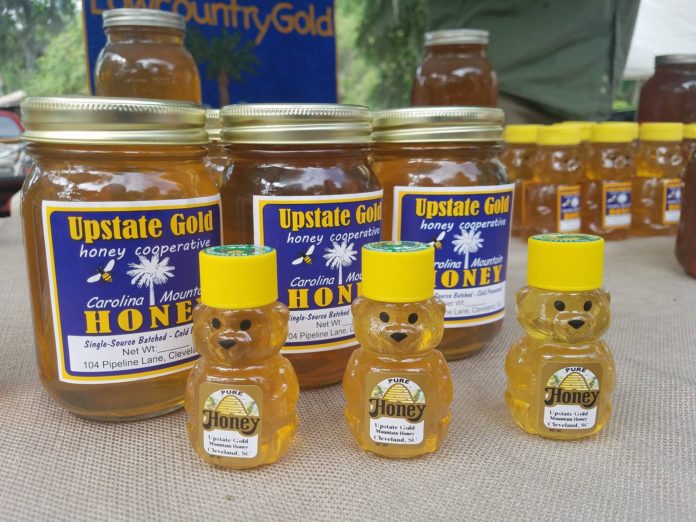It’s inching toward springtime in Beaufort and along with flowers in bloom we’re seeing the familiar yellow dust-like coating on our cars, on our houses and practically anything that is outside.
The culprit of that familiar sheen is literally everywhere you look.
Pollen.
Pollen brings allergies and some folks suffer pretty badly, wearing a red nose through most of March and parts of April while buried beneath a mountain of tissues. Most get allergy shots and stock up on the allergy meds.
And, lots of folks turn to local honey.
It’s no secret that a treatment to avoid and prevent the springtime sniffles is by eating local honey. The theory is pretty basic: local bees collect pollen, pollen gets into the honey, you get exposed to the allergens, and your body learns they’re safe.
The idea behind honey treating allergies is similar to that of a person getting allergy shots. But while allergy shots have been proven to be effective, the jury on honey actually working is still out. When a person eats local honey, they are thought to be ingesting local pollen. Over time, a person may become less sensitive to this pollen. As a result, they may experience fewer seasonal allergy symptoms.
The belief that this works is so widespread that a group of scientists decided it was worth testing, according to Popular Science.
Volunteers with seasonal allergies were told either to eat a tablespoon of honey every day or to eat corn syrup flavored with artificial honey. Those eating the honey reported statistically significantly lowered symptoms—it was so promising that the researchers decided they really did need to see whether honey could help with allergies.
So they progressed to a double blind trial—one where no one knew what they were getting.
Participants this time got divided into three groups: one got local honey, one a national pasteurized honey, and one the flavored corn syrup. They ate a full tablespoon every day. If this sounds thoroughly gross to you, you are not alone. Out of 36 initial volunteers, 13 dropped out because the regimen was too sweet for them. Those who survived eating a tablespoon of honey every day for 30 weeks mailed in journals regularly tracking their perceived allergy symptoms.
By the end of the study, those who ate the honey were doing no better with their allergies than those who ate the corn syrup (though their blood sugar might have been in better shape).
It’s possible, of course, that the participants simply weren’t eating enough honey. The scientists note in their paper that oral consumption of allergens has historically been shown to be an effective way to train the immune system not to overreact. It follows that the allergens in honey should help train people’s bodies. If that’s the case, though, we’re still out of luck. Not many people will be able to tolerate eating multiple tablespoons of honey every day.
All this being said, like all natural remedies, you may genuinely feel better eating honey. If you believe the honey helps, then the honey helps. All that matters in the end is that you feel better, and if eating a tablespoon of honey is what enables you to spend those Lowcountry springtime days outside, you should go for it.
Local Beaufort honey is delicious. You’ll find it in some of our local shops and markets, and you’ll usually see some every Saturday morning if you visit the Port Royal Farmers Market.










